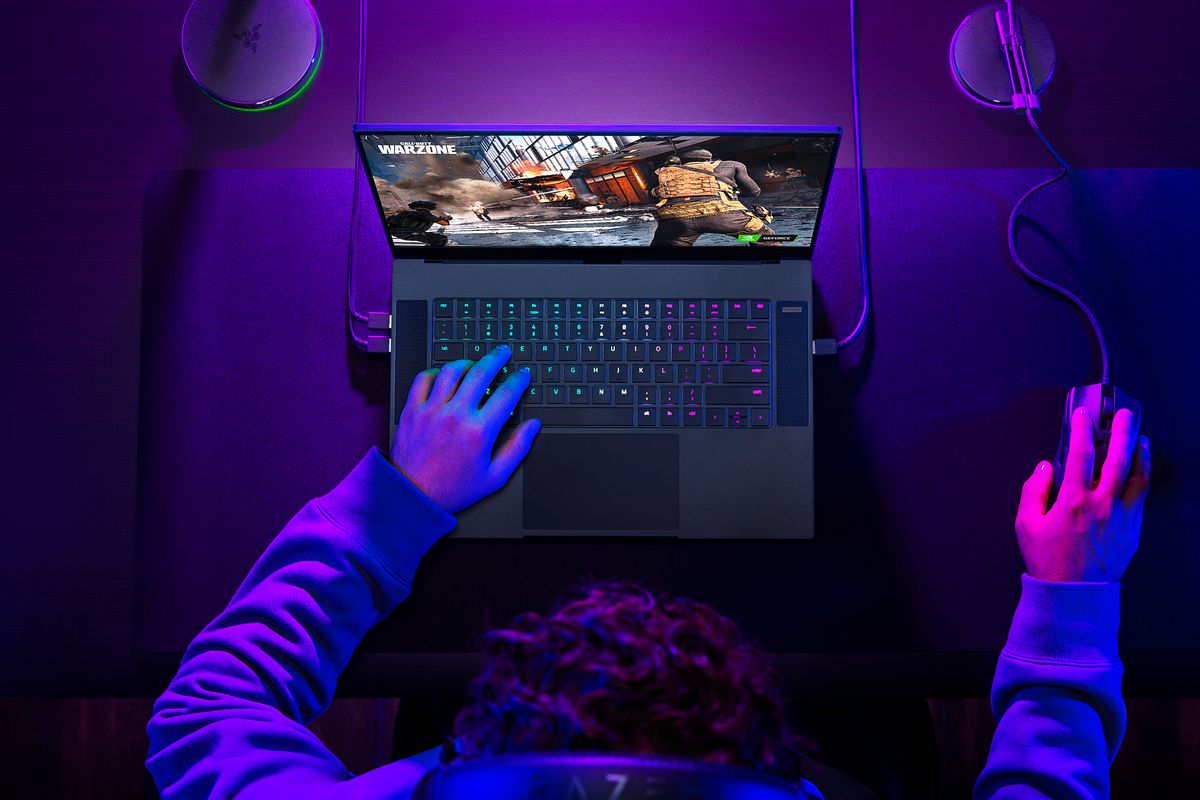The Elder Scrolls Online (ESO) is a highly popular action-adventure exploration-type MMORPG that has captivated players since its release in 2014. Developed by ZeniMax Online Studios and Bethesda Softworks, this award-winning online multiplayer RPG offers limitless adventures in a world of battles, crafting, and exploration. However, some players have encountered a frustrating issue where the game fails to launch on their PCs. If you’re facing the same problem, this troubleshooting guide will provide you with effective solutions to get your game up and running.
Why Won’t Elder Scrolls Online Launch?
Elder Scrolls Online is not immune to the common issues and bugs that can plague PC games. Players often encounter startup crashes or game not launching problems. There can be several reasons behind this, ranging from outdated game patches and graphics drivers to missing or corrupted game files. Issues with the Microsoft Visual C++ Redistributable, unnecessary background processes, or incompatible PC hardware can also contribute to the game not starting. To successfully resolve this issue, it’s essential to identify the underlying cause and apply the appropriate fixes.
Fix: Elder Scrolls Online Not Starting on PC
To address the issue of Elder Scrolls Online not starting on your PC, follow these troubleshooting steps. Each method targets a specific potential cause, ensuring a comprehensive approach to resolving the problem.
1. Check System Requirements
Before diving into troubleshooting, it’s crucial to verify if your PC meets the game’s system requirements. Incompatible hardware can often lead to issues with game launching. The minimum and recommended system requirements for Elder Scrolls Online are as follows:
Minimum System Requirements:
- Requires a 64-bit processor and operating system
- OS: Windows 7 64-bit
- Processor: Intel Core i3 540 or AMD A6-3620 or higher
- Memory: 3 GB RAM
- Graphics: Direct X 11.0 compliant video card with 1GB RAM (NVidia GeForce 460 or AMD Radeon 6850)
- DirectX: Version 11
- Network: Broadband Internet connection
- Storage: 85 GB of available space
- Sound Card: DirectX compatible sound card
Recommended System Requirements:
- Requires a 64-bit processor and operating system
- OS: Windows 7 64-bit
- Processor: Intel Core i5 2300 or AMD FX4350
- Memory: 8 GB RAM
- Graphics: Direct X 11.0 compliant video card with 2GB RAM (NVIDIA GeForce GTX 750 or AMD Radeon HD 7850) or higher
- DirectX: Version 11
- Network: Broadband Internet connection
- Storage: 85 GB of available space
- Sound Card: DirectX compatible sound card
Ensure that your PC meets these requirements to avoid any hardware-related issues.
2. Run the game as an Administrator
Running Elder Scrolls Online with administrator privileges can help resolve issues with game launching. To run the game as an administrator, follow these steps:
- Right-click on the Elder Scrolls Online executable shortcut file on your PC.
- Select Properties and click on the Compatibility tab.
- Check the “Run this program as an administrator” checkbox.
- Click Apply and then OK to save the changes.
Running the game as an administrator ensures that it has the necessary permissions to launch properly.
3. Verify Integrity of Game Files
Corrupted or missing game files can prevent Elder Scrolls Online from starting. Verifying and repairing the game files using the game launcher can resolve this issue. To do so:
- Launch Steam and go to your Library.
- Right-click on Elder Scrolls Online from the list of installed games.
- Select Properties and go to the Local Files tab.
- Click on “Verify Integrity of Game Files.”
- Wait for the process to complete.
- Restart your computer.
Verifying the integrity of game files ensures that any corrupted or missing files are replaced, allowing the game to launch properly.
4. Update Microsoft Visual C++ Redistributable
Outdated versions of Microsoft Visual C++ Redistributable can cause issues with game launching. To update the Microsoft Visual C++ Redistributable, follow these steps:
- Navigate to the following path on your PC: C:Program Files (x86)SteamsteamappscommonSteamworks Shared_CommonRedistvcredist.
- Run the vcredist.x64.exe files in the 2012, 2013, and 2019 folders. (Run the vcredist.x64.exe file in any additional folders if present.)
- Restart your PC to apply the changes.
Updating the Microsoft Visual C++ Redistributable ensures that the necessary runtime components are up to date, eliminating any compatibility issues.
5. Update DirectX
Outdated DirectX components can also cause Elder Scrolls Online to fail to launch. To update DirectX, follow these steps:
- Go to the C:Program Files (x86)SteamsteamappscommonSteamworks Shared_CommonRedistDirectX folder path.
- Run the DXSETUP.exe file to reinstall or update DirectX.
- Restart your computer to apply the changes.
Updating DirectX ensures that your system has the latest version, enabling proper game launching.
6. Update GPU Drivers
Outdated graphics drivers can contribute to game launching issues. To update your GPU drivers, follow these steps:
- Press Windows + X keys to open the Quick Link Menu.
- Click on Device Manager and double-click on Display adapters.
- Right-click on the dedicated graphics card that’s active.
- Select Update driver and choose “Search automatically for drivers.”
- If an update is available, the system will download and install it.
- Restart your computer to apply the changes.
Updating your GPU drivers ensures that your graphics card is compatible with Elder Scrolls Online, resolving any related launching problems.
7. Disable Overlay Apps
Overlay apps like Xbox or Discord can sometimes interfere with game launching. Disabling these overlay apps can help resolve the issue. Follow these steps to disable overlay apps:
- Disable the overlay app running in the background, such as Xbox or Discord.
- Launch the game again to check if it launches properly.
Disabling overlay apps ensures that there are no conflicts with the game processes or system resources.
8. Install All Pending Windows Updates
Outdated Windows software can cause compatibility issues with games. Installing all pending Windows updates ensures that your system is up to date and eliminates potential conflicts. To install Windows updates, follow these steps:
- Press Windows + I keys to open the Windows Settings menu.
- Click on Update & Security and select “Check for updates” under Windows Update.
- If a feature update is available, select “Download and install.”
- Wait for the update process to complete.
- Restart your PC to apply the changes.
Installing Windows updates ensures that your system has the necessary patches and fixes, enabling smooth game launching.
9. Disable Antivirus and Firewall Programs
Sometimes, antivirus or firewall programs can interfere with game launching. Temporarily disabling these programs can help determine if they are causing the issue. Follow these steps to disable antivirus and firewall programs:
- Click on the Start menu and type Control Panel. Click on it to open.
- Search for “firewall” in the Control Panel and click on Windows Firewall.
- From the left pane, click on “Turn Windows Firewall on or off.”
- Select “Turn off Windows Firewall” for Private, Domain, and Public Network Settings.
- Restart your PC to apply the changes and check if the issue persists.
Additionally, disable Windows Defender by following these steps:
- Go to Windows Settings > Privacy and Security.
- Navigate to Windows Security > Virus & threat protection.
- Click on “Manage settings” and turn off Real-time Protection.
- Restart your PC to apply the changes.
If you have a third-party antivirus program, make sure to turn it off manually.
10. Launch the Game in Windowed Mode (Steam)
Running the game in windowed mode can help resolve issues related to fullscreen display mode. To launch Elder Scrolls Online in windowed mode, follow these steps:
- Open the Steam client and go to your Library.
- Right-click on Elder Scrolls Online and select Properties.
- In the General section, click on “Set Launch Options.”
- Copy and paste the following command-line argument: -windowed -noborder
- Save the changes and try running the game again.
Launching the game in windowed mode ensures compatibility with your hardware and resolves any issues related to fullscreen display.
11. Perform a Clean Boot
Performing a clean boot helps identify if any third-party software or services are causing conflicts with game launching. To perform a clean boot, follow these steps:
- Press Windows + R keys to open the Run dialog box.
- Type “msconfig” and hit Enter to open the System Configuration window.
- Go to the Services tab and enable the “Hide all Microsoft services” checkbox.
- Click on Disable all.
- Click Apply and then OK to save the changes.
- Go to the Startup tab and click on “Open Task Manager.”
- Under the Startup tab in Task Manager, disable the tasks enabled for startup boot.
- Select high-impact startup programs and disable them one by one.
- Restart your PC to apply the changes.
- Check if the Elder Scrolls Online launches properly.
Performing a clean boot eliminates any conflicts caused by third-party software or services, allowing the game to launch without issues.
12. Close Background Processes
Background processes can consume system resources and interfere with game launching. Closing unnecessary background processes can help resolve the issue. To close background processes, follow these steps:
- Press Ctrl + Shift + Esc keys to open Task Manager.
- Click on the Processes tab and select the tasks you want to close.
- Click on End Task for each selected task.
- Restart your computer to apply the changes.
Closing background processes frees up system resources, ensuring smooth game launching.
13. Reset Elder Scrolls Online
If none of the previous methods worked, resetting Elder Scrolls Online can help resolve any underlying issues. To reset the game, follow these steps:
- Press the Windows (Start) + X keys to open the Quick Link Menu.
- Select Apps and Features and click on Elder Scrolls Online from the list of installed programs.
- Click on Advanced options and select Reset.
- Restart your computer and try launching the game.
Resetting Elder Scrolls Online restores the game to its default settings, resolving any issues that may have been causing the game not to start.
14. Reinstall Elder Scrolls Online
If all else fails, reinstalling Elder Scrolls Online can often resolve the game not launching issue. To reinstall the game, follow these steps:
- Launch the Steam client on your computer.
- Go to Library and right-click on Elder Scrolls Online.
- Select Manage and choose Uninstall.
- If prompted, click Uninstall again and follow the on-screen instructions to complete the uninstallation process.
- Restart your computer to apply the changes.
- Open the Steam client again and install the game using your existing Steam account.
- Enjoy the game. This should resolve the issue of Elder Scrolls Online not launching on your PC.
Reinstalling the game ensures that all game files are properly installed and any corrupted files are replaced.
Conclusion
The Elder Scrolls Online is an immersive MMORPG that offers a vast and captivating gaming experience. However, encountering issues with game launching can be frustrating. By following the troubleshooting steps outlined in this guide, you can overcome the problem of Elder Scrolls Online not starting on your PC. Whether it’s verifying the game files, updating system components, disabling overlay apps, or performing a clean boot, these solutions address the most common causes of game launching issues. Remember to ensure that your PC meets the game’s system requirements and keep your hardware drivers and software up to date for optimal gameplay. Now, you can immerse yourself in the fantastical world of Elder Scrolls Online without any hindrances. Happy gaming!







